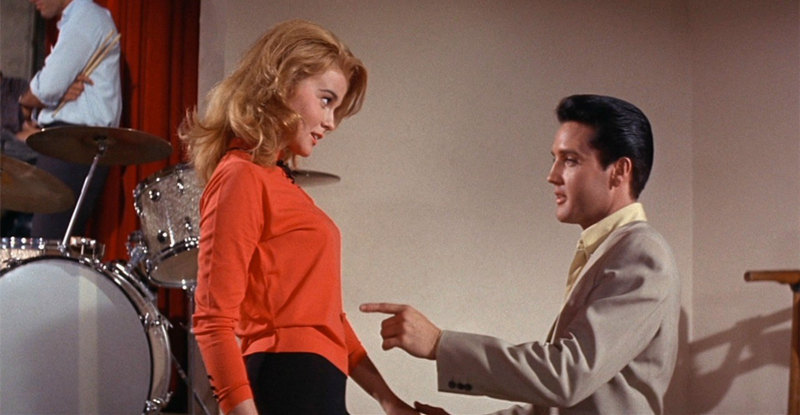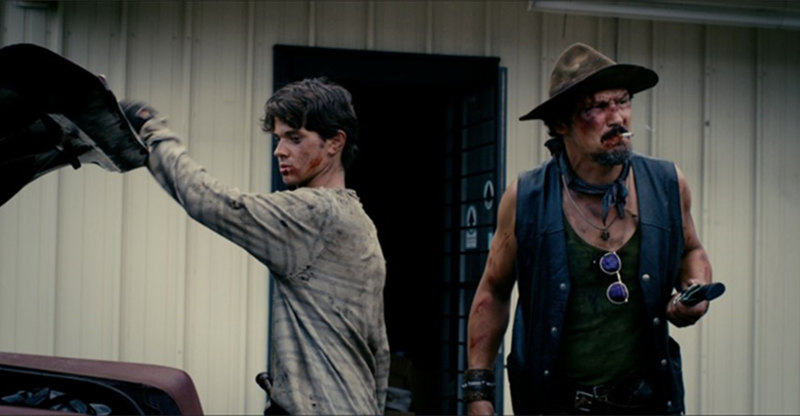Before the 2003 “shock and awe” attack against Iraq, President George W. Bush and his staff claimed that their intelligence proved Saddam Hussein had materials that could only be used for building “weapons of mass destruction.” None were ever found, though, and to explain those claims that were proven false, the Bush administration blamed “faulty intelligence.”
But if you watch “Fair Game” and especially if you listen to the commentary track, you get a completely different story. Analysts who had been researching and studying the situation for 15 months or longer were overwhelmingly of the opinion that there were no weapons of mass destruction and no viable nuclear weapons program. But each was interviewed separately and confronted with Vice President Dick Cheney’s “one percent doctrine”: is there a one percent chance that the intelligence could be wrong? As Valerie Plame Wilson says on the commentary track, “the intelligence was made to fit around the policy.”
Valerie Plame. Remember her? She’s the CIA officer who was in charge of Iraq, though no one had heard of her because she was working undercover and involved in covert operations. But her husband, a former U.S. Ambassador, was tabbed to go on a fact-finding mission for the Bush administration (who claimed that Saddam Hussein recently sought uranium from Niger), and, angered that the administration ignored his findings and continued its rush to war, went public with an op-ed piece titled “What I didn’t find in Africa” (New York Times, 6 July 2003). The Bush administration responded by leaking Plame’s identity to Robert Novak, presumably so he could counter in a column of his own that was published eight days later. Then everything hit the fan. Plame’s career was ruined almost overnight, and the safety of her contacts overseas was compromised–all because Scooter Libby, who took the fall and later had his 30-month prison sentence commuted by President Bush, wanted to silence her husband.
Novels have a hard enough time making it through the film process, but headline stories? They usually come across like made-for-TV movies, no matter how big the screen. That’s not the case with “Fair Game,” which is surprisingly well done.
The script is intelligent, the acting is understated yet powerful, and the actors were well cast–at all levels. “Fair Game” doesn’t exactly play out like a political thriller, though. It’s more the story of a victim trying to fight back, and as such it’s more in the tradition of a film like “The Accused.” But director Doug Liman (“The Bourne Identity”) is almost as relentless in his pursuit of the core story as Plame’s husband was intent on not letting the people in power get away with murder–political and literal, for as Plame Wilson confirms on the commentary track, lives were lost because of this shameless ploy.
Naomi Watts and Sean Penn work well together and make for a believable Plame and Joe Wilson, but realistic-looking CIA sets and location filming in Cairo, Amman, and Malaysia reinforce the illusion of actuality. Two scenes in particular drive home the point of their delicate relationship: one, when he comes downstairs in the middle of the night as she’s slipping out the front door on another assignment, and another, when he’s in bed with her and notices bruises all over her arm. “I like this scene,” Joe says on the commentary voiceover. “It portrays the kind of stuff you couldn’t tell me when you were on those trips.” That really comes across, but both scenes are handled with some tenderness and, yes, more understatement. Liman must have instinctively realized that without understatement this story had all the potential to be as cheesy as anything you’ll find in Wisconsin. It’s that light touch that makes “Fair Game” such a compelling film. The writers, the directors, and the actors all trust the audience to read between the lines, and that’s refreshing.
If this were a wholly invented story instead of one based on real events and true to actual events, according to the real Wilsons, there would have been at least one more plot twist and one more menacing character, and that might have made the narrative a little more suspenseful or exciting. But there’s a lot to be said for a real story that sticks to the facts, and actually casts people who look like their real-life counterparts.
Video:
“Fair Game” is presented in 2.39:1 aspect ratio, and the MPEG-4/AVC transfer to a 25GB disc is a good one. I saw only a few instances of artifacting. Mostly, what you notice is the high level of HD detail on surfaces and textures and the most believable-looking skin tones I’ve seen lately. It’s a solid video presentation. Even the exteriors are impressive, with only a single instance of background grain that stood out. Everything else looked full of color, full of life, and perfectly lit to achieve those effects.
Audio:
The featured audio is the standard English DTS-HD MA 5.1, with an additional audio option in Spanish Dolby Digital 2.0 and the commentary track also in 2.0. Subtitles are in English SDH and Spanish.
Extras:
The only bonus feature is the commentary from Valerie Plame Wilson and Joe Wilson, and while there’s plenty of dead space, what they have to say more than makes up for it. And they manage to entertain as well as inform. In the opening, for example, as Valerie remarks how “chilling” it is to see “these guys again” and “the way they sold this, the politics of fear,” she concludes, solemnly, “Hopefully it’ll never happen again.” To which Joe quickly adds, “To us, and they both laugh. He gets a laugh out of her as well when he calls her on her “sultry voice” she adopted initially in the commentary track. They have a laugh too when she remarks how what Penn is wearing is exactlyJoe’s bracelet, and even the wedding band, and seems surprised when Joe tells her, “I loaned it to them.” Earlier, he says the one scene that would have been fun for them to include was “how we met at the Turkish Ambassador’s.”
Of course it gets political, as when Condoleezza Rice is shown speaking on TV and Valerie remarks, “She was part of that chorus . . . the lies were of a theme, it was completely orchestrated.” But then she grows appreciative as well: “They leak it to the New York Times, and then she goes on “Meet the Press” and quotes the New York Times. Brilliant! As I said, it’s both entertaining and revealing.
Bottom Line:
“Fair Game” is a solid film that shows the kind of work that goes on during real CIA covert operations, and it documents a scary abuse of power during a decade that was full of such abuses. Where Valerie Plame Wilson and Joe Wilson stand is made clear when she comments on Dick Cheney’s “doctrine,” calling it “an extremely dark and ultimately dead-end view of the world . . . where you sacrifice all freedoms for security.” You might wish that the film delved more deeply into whether Libby acted on his own or whether he took the fall for higher-ups, or whether President Bush knew was misled by Cheney and others. But that’s another movie. This is the Plame-Wilson story, and for many that will be fascinating enough.
-
Video - 9/109/10
-
Audio - 9/109/10
-
Extras - 5/105/10
-
Film Value - 7/107/10
Summary
The script is intelligent, the acting is understated yet powerful, and the actors were well cast–at all levels.


